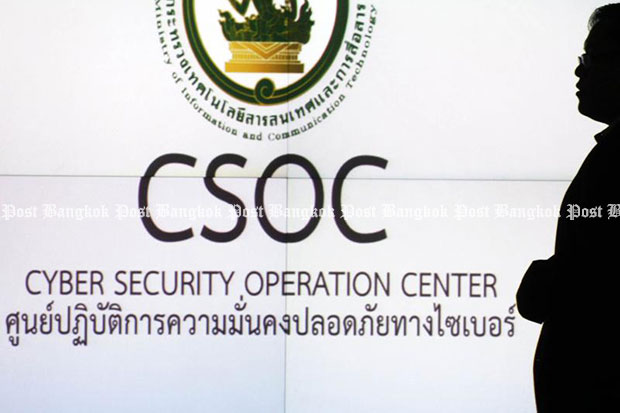
Thailand ranks ninth worldwide for web-based security threats, making it one of the most targeted countries by hackers, says Kaspersky Lab, a Moscow-based supplier of security software.
A survey conducted by Kaspersky from June-August found 30% of internet users in Thailand suffered web-borne malware attacks.
Vietnam is ranked eighth for cybersecurity threats, China 12th and Indonesia 23rd.
"Emerging countries like Thailand, Vietnam, China and Russia are among the prime targeted sites by hackers," said Yury Namestnikov, Kaspersky's senior security researcher.
He said a lack of internet security awareness and security software updates in Thailand as well as using pirated or counterfeit software programs were the main factors in the rise of hacking in this country.
Mr Namestnikov pointed to the absence of local cybersecurity laws and regulations as another factor in hacking epidemic.
Advancing Thailand as a digital economy will require a national security strategy and framework, he said.
A separate study by Kaspersky conducted from April-June found Thailand ranked seventh out of 20 countries for online infection threats.
Mr Namestnikov said Thailand was also one of the most targeted countries for advanced persistent threat (APT), a network attack in which an unauthorised person gains access to a network and stays there undetected for a lengthy period.
APT is difficult to detect and get rid of. Most APT attacks are executed for high-value information, digital identities, government links and scientific research publishing.
Mr Namestnikov said up to 4,400 organisations suffered cyberattacks last year.
"It's time for companies to implement security strategies and adopt security technologies to address these issues and ensure business operations," he said.
New attractions for cyberattackers will include critical infrastructure systems, smart city projects, the Internet of Things and automotive technology such as internet-connected cars.
The boom in cloud computing has also brought new security challenges.


